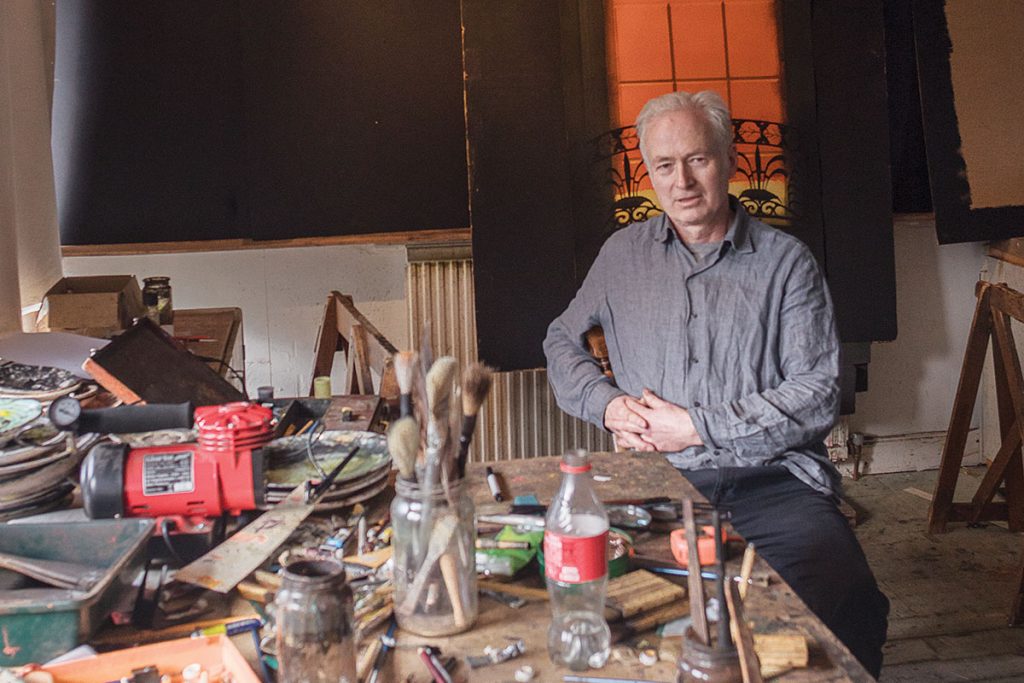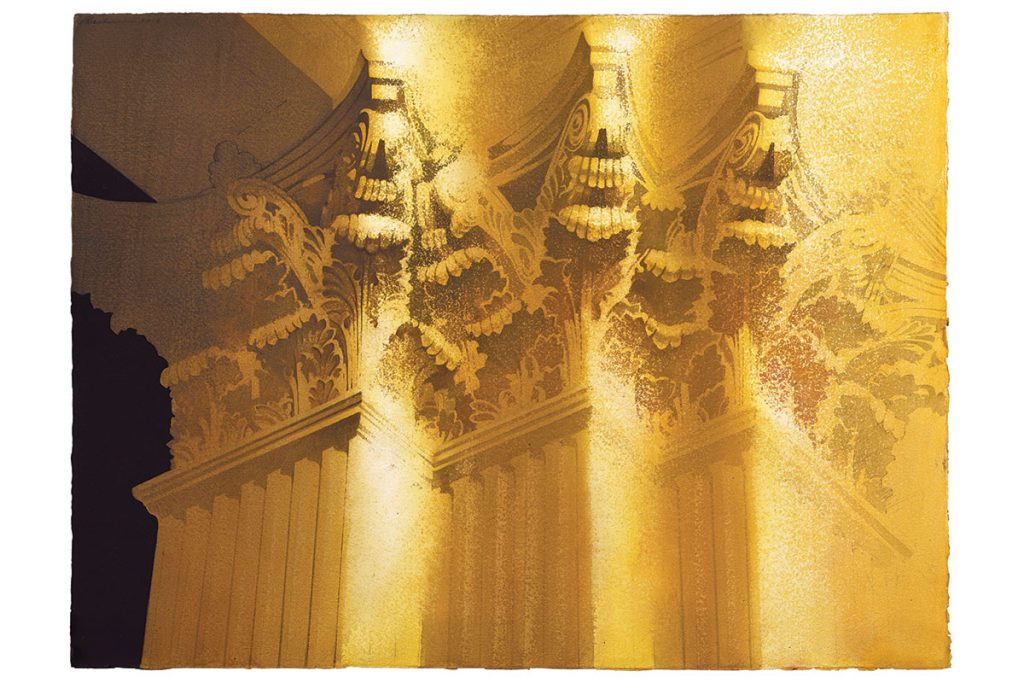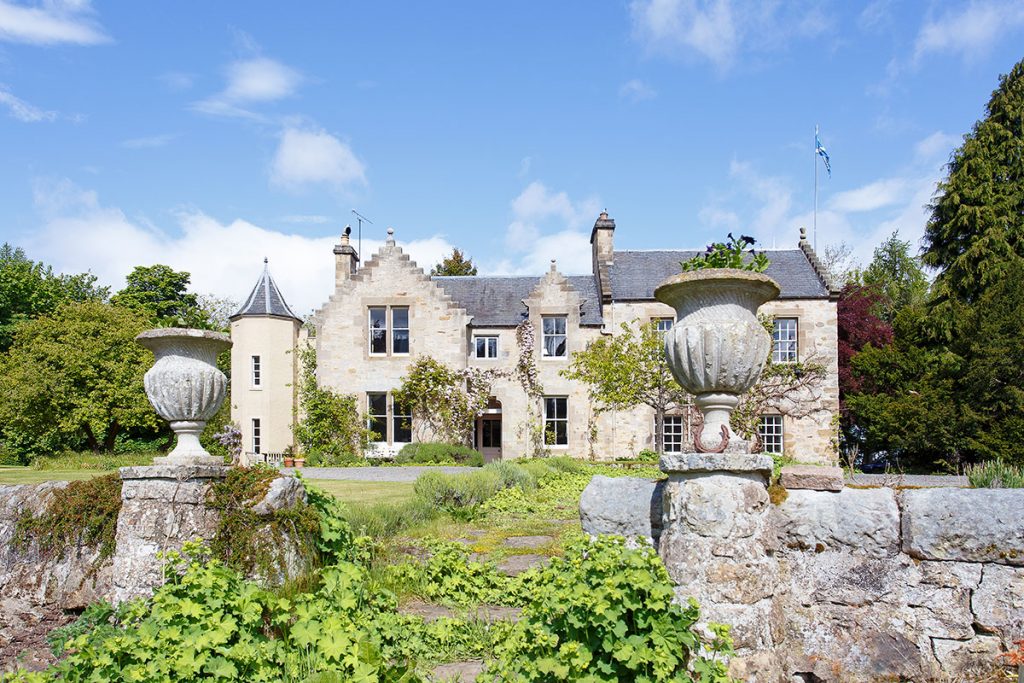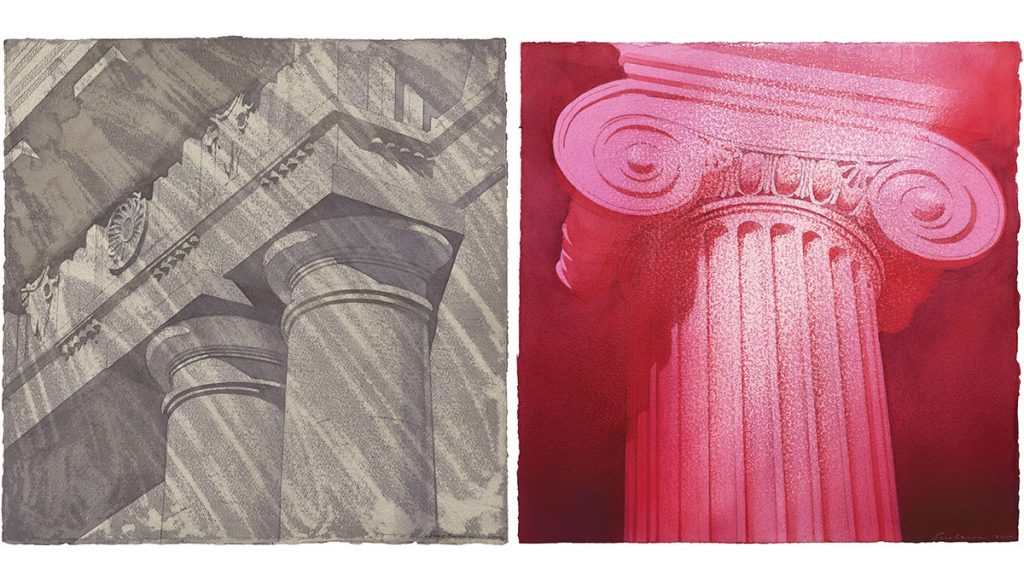Painting Edinburgh’s Georgian splendour is far from an exercise in rose-tinted nostalgia for watercolour artist Hugh Buchanan

Photography Stephen Dunn and Douglas Gibb
Words Catherine Coyle
Hugh Buchanan’s studio is deliberately dark. The artist doesn’t want to be reminded of the modern world while he’s painting images of classical buildings. This is despite the fact that the studio is in a 16th-century tower house, part of his home in East Lothian. But precision is a vital part of how Buchanan creates his watercolours, and if that requires a dimly lit studio, so be it.
Today he is busy putting together a final selection of new paintings for his solo show at the Scottish Gallery this winter. Entitled Capital City, the subject matter is Edinburgh’s classical architecture. “Classicism suits the Scottish character,” says the artist, who studied at Edinburgh College of Art in the late 1970s. By the time he graduated, the art world was riding a wave of post-modernism. Buchanan continued that rebellion, and has spent the decades since honing his own particular take on classicism. “I like the dirtiness of Edinburgh’s buildings; it reflects its character, its gloominess and reticent charm.”

For Buchanan, it’s the light and the texture that he’s always trying to capture, whether he is looking at the Corinthian columns of the Signet Library or Playfair’s Royal Scottish Academy on the Mound. Make no mistake, though; these are contemporary paintings using new techniques and offering fresh perspectives, rather than simply faithful representations of historic Georgian buildings or strict architectural studies. “I use my phone to take deliberately bad photos,” explains the artist of his process. “That way, I have to really work hard to remember how a building looks. But I use the photos to get unusual viewpoints, otherwise you’re bound to repeat what has been done before.”
To create atmosphere in his watercolours, preparation is key. “I realised I had to paint the stone first and the subject later,” he explains. “First of all, I had to find a very large, hard-wearing paper. Then, through agonising periods of experimentation – of wiping it and rubbing it with rags, dropping masking fluid on it from great heights, sandpapering it, airbrushing it – the texture of that stone began to emerge. Last of all, I had to find compositions that comfortably sat upon the random, accidental marks that I had created. That’s how the paintings evolved.”

Buchanan’s work doesn’t just speak to the distant past. In his series of studies of the RSA, for instance, he references the fluorescent lighting that illuminates this classical behemoth today, and his use of colour has a pop art resonance. “I was thinking about Warhol when I did these,” he says. “The different coloured blocks are my Marilyns, if you like. I’m taking the past and representing it in a new way.”
Likewise, the careful grooves of the columns give the impression of an optical illusion, akin to the artwork of Bridget Riley that was on display inside at the time of painting. “Classicism, especially in the digital age, is always capable of reinvention.”
Hugh Buchanan: Capital City is at the Scottish Gallery, Edinburgh, in December.






